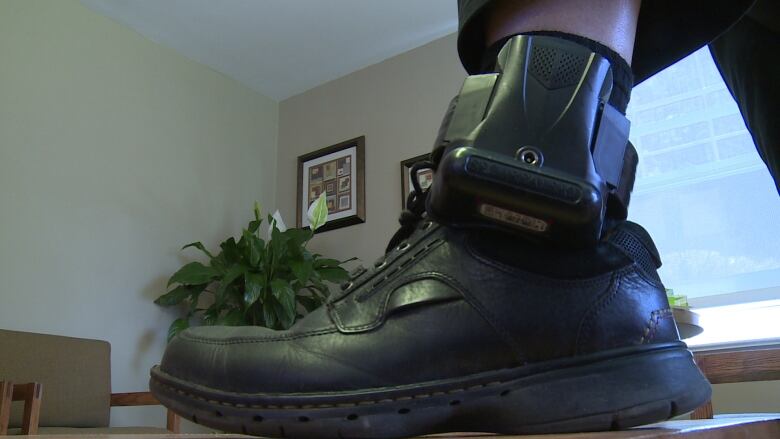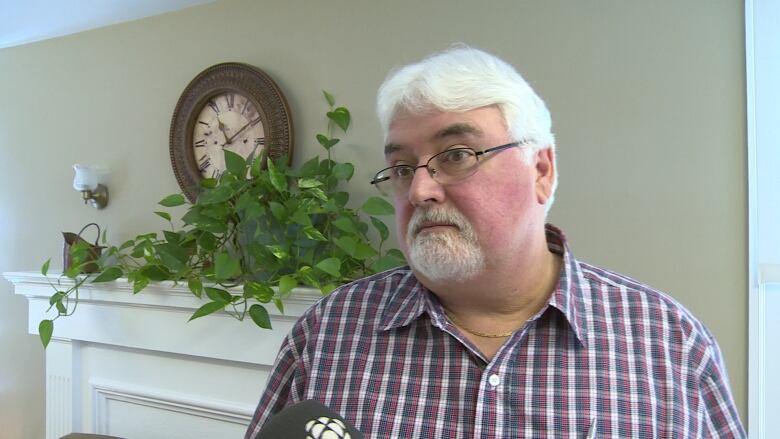P.E.I. 'safer' with ankle bracelet system, says province
Justice officials able to track offenders through GPS

A program to track offenders through GPS has been a success so far, according to the province.
"It is meeting the target that we had indicated, the objectives,"said Allan Curley with the Department of Justice.
"The courts, the probation services, victim services, all the stakeholders in our own service are very impressed with the system."
The electronic supervision program started as a one-year pilot project in February.
Offenders are given an ankle bracelet equipped with GPS. If they leave a certain zone, a monitoring centre in Sudbury, Ont., is notified.
Depending on the sort of breach, police could be notified right away or the offender could be notified first.
Tracking offenders by the minute

"The software is basically a Google Maps software that we can see every minute where the offender is of every day," said Shawn Arbing, the electronic supervision coordinator for P.E.I.
About a dozen Islanders have been given the bracelets so far. Six are using them right now.
The monitoring devices would allow some inmates to be released from custody earlier, according to the Justice Department. It also plans to use the bracelets to keep tabs on high-risk offenders.
'Safer today than they were yesterday'
Curley said the first priority is keeping the public safe.
"The reality is, they're all safer today than they were yesterday," he said.
The other goal, he said, is helping offenders transition back into the community.
"Research tells us that if they're in the community, as opposed to in custody, they're much more likely to be successful," he said.
-
MORE P.E.I. NEWS | Genetically modified salmon approved for sale as food in Canada
-
MORE P.E.I. NEWS | Are new doctors putting in as many hours as established ones?
With files from Kerry Campbell












_(720p).jpg)


 OFFICIAL HD MUSIC VIDEO.jpg)
.jpg)



























































































